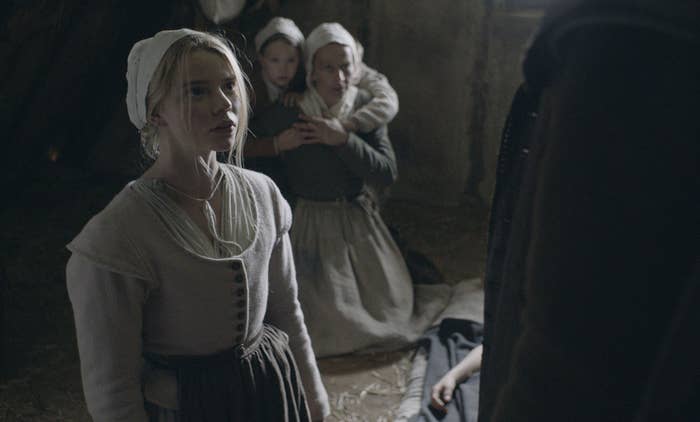
PARK CITY, Utah — There are horror movies, there are art movies, and then there are those that fall in the sweet spot between where fans of the scary and fans of the exquisitely shot come together. And that usually happens at a film festival.
Like many fests, the annual Sundance Film Festival has a midnight section where most of its genre selections — including Eli Roth's latest, Knock Knock, and David Robert Mitchell's beautiful, terrifying sexually transmitted haunting movie It Follows — are grouped. But this year, the most talked-about horror film in Park City, The Witch, premiered in the bright light of afternoon in Sundance's largest theater, courtesy of its place in the main dramatic competition. And, in addition to The Witch, two other movies also pushed the boundaries of what horror could be with innovative filmmaking and a willingness to show the many different types of fears people grapple with.
1. The Witch
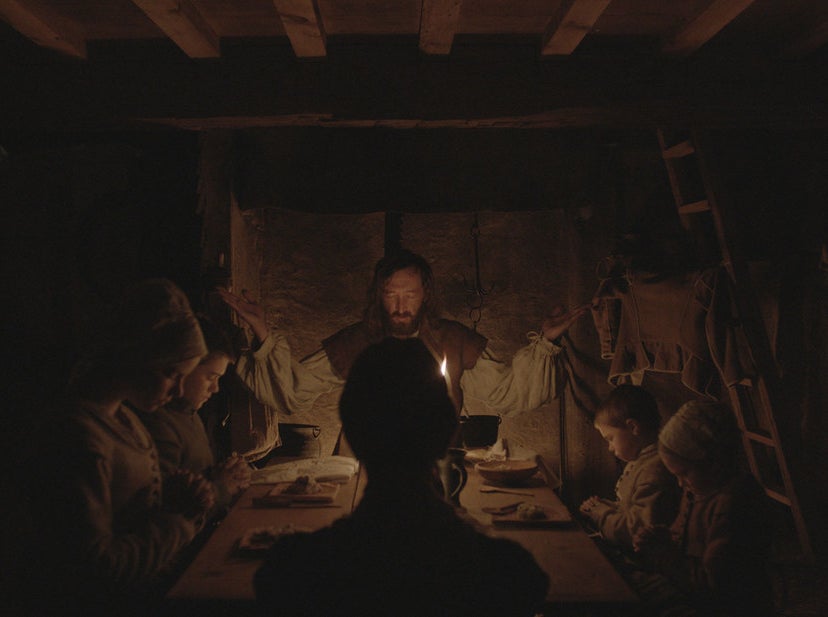

Filmmaker Robert Eggers' directorial debut is set in New England in the early days of colonization, where a Puritan family, expelled from their plantation, set up a farm on the edge of an old forest. The Witch draws heavily from the colonial period's folktales and lore — Eggers used historical research to recreate the lifestyle, language, and mind-set of that era and culture. The result is like being immersed in someone else's nightmare.
The horrors in the film may not be a reflection of the usual modern-day fears, but The Witch is no less unsettling for it, and the beliefs to which its characters hew are as much a source of unease as they are a source of comfort. For the family at the movie's center, damnation lurks around every corner, human existence is a sin for which continual repentance is needed, and the devil is a very real and very active presence. Having left England to carve out a more devout way of life in the New World, they find themselves leaving the colony behind, thanks to patriarch William (Ralph Ineson) clashing with its leadership. But in their new farm at the edge of the dark, foreboding woods, a day's ride from the nearest village, the family are in danger of starving, as their crops are failing and winter is looming.
There are witches in Eggers' film, and they're formidable and frightening as they make forays out of the woods, as an early, disturbing scene of gore confirms. But the family's existing fractures that the supernatural stresses widen are just as threatening to their well-being — resentments, jealousy, and illicit desires have been cultivated in their isolation. When, early on, William and Katherine's (Kate Dickie) newborn goes missing at the hands of a witch, it's not just grief at what happened that haunts the family, it's the belief that the child is damned because he was unbaptized.
The Witch is set in 1630, decades before the Salem witch trials, but it lays the groundwork for that eventual panic — its characters need no convincing that witches are real and among them, perhaps even sharing their house and their blood. It's a credit to the world that Eggers evokes in The Witch, which was gorgeously and forbiddingly shot by Jarin Blaschke with great use of the lurking darkness, that so many of the film's period-specific menaces are creepy instead of ridiculous. Let's put it this way: You will believe a goat can channel Satan.
2. The Nightmare
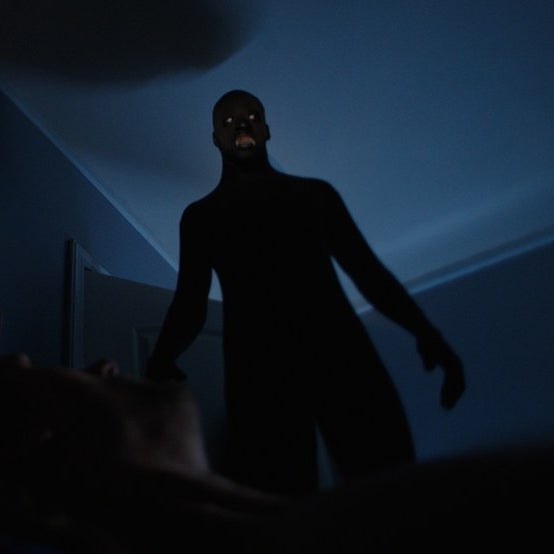
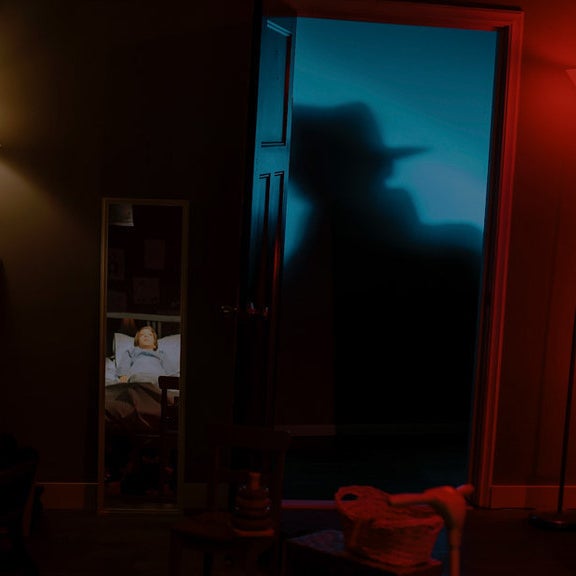
A documentary has perhaps never been as frightening as The Nightmare, the most unusual entry in the Park City at Midnight section this year. The new film from Rodney Ascher, whose acclaimed 2012 doc Room 237 explored the different, elaborate theories about The Shining held by its five main subjects, is also built around interviews — this time, with a group of people who've all experienced sleep paralysis. They have woken up at night, unable to move, certain something's coming into their room, lurking over their bed, while they lie there, helpless.
The Nightmare is more concerned with the experience of sleep paralysis than with sleep paralysis as a wider phenomenon. While the film includes some of its eight interviewees talking about their own research into the long history of the condition — which shares a name with Henry Fuseli's famous 1781 painting, believed by some to be a figurative depiction of sleep paralysis — it never pulls back from their own personal experiences. The Nightmare renders those histories in horror-movie-style re-enactments, putting the stories on screen in expressionist scenes. A face suddenly appears outside the window of one woman as she sits in her bedroom, talking about how she used to wake to what she was sure was the sound of someone tapping on the glass. A warped silhouette hunches by another's bookcase, and jerkily walks toward the camera.
Even when the effects are intentionally DIY, these sequences contain surprising jolts and are marvelously effective in portraying dream logic. As personal as they are, they contain recurring themes, such as that of the shadow men, featureless, entirely black figures that emerge from the darkness and appear in the nightmares of most of the film's participants.
The Nightmare is also not without a sense of humor, leaving in the beat in which one of the interviewees, having creeped himself out, whips his head around to see who might be behind him in his own house. And the lack of typical horror movie escalation means that The Nightmare is able to keep you constantly unsettled. How do you prepare for the occasional jump scare in a movie that's built around talking heads?
But the film's insular nature does eventually become claustrophobic and repetitive — after all, there's only so much you can do to make someone else's dreams interesting, even with inventive visuals — making the audience long for some outside perspective or something, anything, beyond the confines of these anecdotes.
3. Entertainment
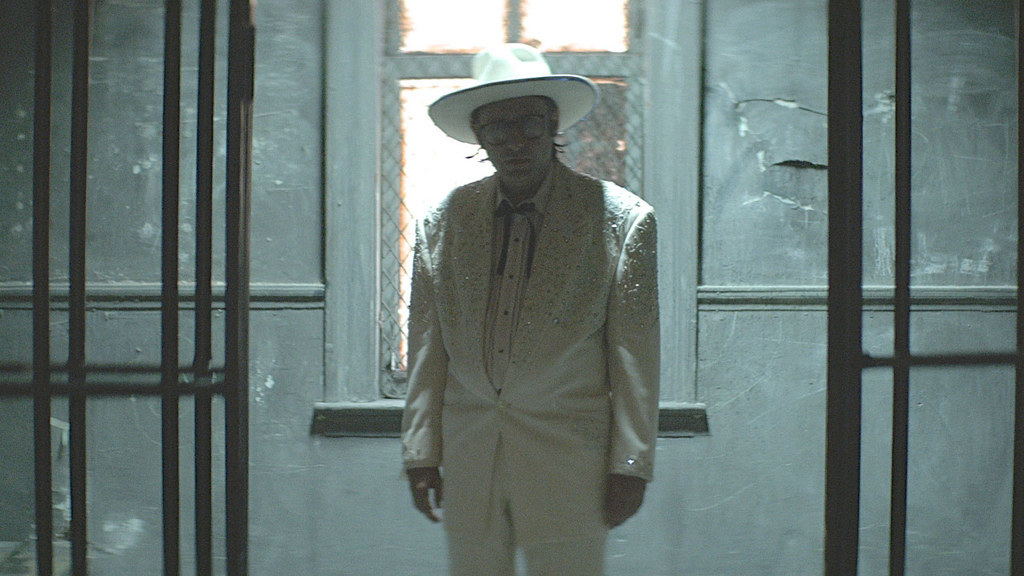
Rick Alverson's dread-filled latest, Entertainment, isn't a horror movie at all, not in the traditional sense. But by the end, it feels like it fits in that genre as much as it does comedy: Essentially, it's like watching someone die repeatedly, albeit on stage.
The movie stars comedian Gregg Turkington basically as himself, just with a different name. He plays a touring stand-up comedian whose stage persona, Neil Hamburger, is an Andy Kaufman-style anti-comedy marvel — he's funny because he's a terrible performer, looking like he crawled out of some long-lost Las Vegas lounge that time forgot. As Hamburger, Turkington styles his hair in a greasy comb-over, wears a wilting tux, clutches multiple drinks under his arm, and moistly clears his throat between outdated, offensive celebrity gags. His crowd work consists of releasing barrages of unearned bile at his targets. He's what you might call a "high-concept act," and Entertainment puts him in front of an array of sparse audiences who aren't in on the joke.
Turkington's character is affectless and remote when not in his outsized Hamburger persona. He's cold to the admiring Eddie (Mud's Tye Sheridan), who's opening for him on tour with a similarly high-concept clown act. He spends a lot of his time alone, an awkward tourist seeing the sites and waking up in shitty motel room after shitty motel room. He visits his bluff, successful cousin (John C. Reilly), who, bemused by the act, cheerily tries to give him advice ("You need a business plan!"). And the movie gets more Lynchian as it goes along, with strange, surreal cul-de-sacs in which the comedian encounters a nervous fellow traveler (Michael Cera), a chromotherapist, and a woman in labor.
Entertainment is co-written by Tim Heidecker of Tim and Eric, the star of Alverson's previous work, The Comedy. Like that film, Entertainment is more interested in being confrontational and deliberately abrasive than it is in being funny or pleasing, which is the point. But the movie manages bits of dark, deadpan humor anyway, such as when an audience member (Amy Seimetz) takes understandable offense at being heckled by Hamburger as "a little whore," which raises questions for the Entertainment's audience. If no one understands your act, does it even count as one? How perverse is the comedian's repeated insistence that he's just trying to do his job?
This is a movie that is about as enjoyable as embracing a cactus. But once it starts to feel like Entertainment's protagonist is actually stuck in some ironic, awful purgatory, waiting and waiting for someone to tell him it's time to go home, it's difficult to shake the movie off, even long after it's over.

